Pinkerton: Elizabeth Warren’s Rendezvous with Realism—Maybe a Little Trumpism
Now that the 2018 midterm elections are in the rear-view mirror, candidates are gearing up for the 2020 presidential election. So here comes … Elizabeth Warren.

Now that the 2018 midterm elections are in the rear-view mirror, candidates are gearing up for the 2020 presidential election. So here comes … Elizabeth Warren.

I’ve always said that if Tom Brokaw’s 1998 book about World War II veterans, “The Greatest Generation,” had come out a few years earlier, George H.W. Bush would have been re-elected in 1992.

According to news reports, virtually the entire city of Paradise, CA, has been destroyed. In the words of one now-former resident, the burnt-over town “looked like Iraq.” Or as a fire official said even more succinctly, Paradise, once home to 27,000 people, is now “Armageddon.”

According to the exit polls, the biggest issue in the 2018 elections was healthcare. It’s time for Republicans to get on the same side as the American public on this issue. Isn’t it the essence of strong nationalism to say, We take care of our own?

The standard view of World War I is that it is a testament to the futility of war. But maybe the better lesson to learn on the 100th anniversary of WWI’s end is that if war comes, it is better to win than to lose.

The 2018 midterm results show that if the GOP wants to be a full-spectrum longterm majority party, it must unite its disaffected suburban liberal voters with its new Trumpian working class voters, just as Reagan once did.

If you think everyone on the left believes in open borders and utopian world-federalism, you ought to meet John Judis, or at least check out his new book, “The Nationalist Revival: Trade, Immigration, and the Revolt Against Globalization.”

The embattled Republican president is besieged by hostile Democrats and an even more hostile media, who regard him as politically dubious (he was, after all, elected with less than a majority of the popular vote), ideologically out of step (he is deemed “wrong” on the big issues of the day), and personally gauche, even repulsive (the mocking of his physical appearance is perhaps the most savage in American history).
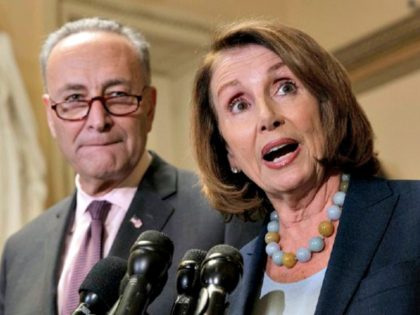
News stories report that President Trump has asked Bill Shine, the former Fox News co-president, to come aboard the White House staff. Shine’s new job, at least in part, would be to direct communications. This news might not strike some observers as a very big deal.
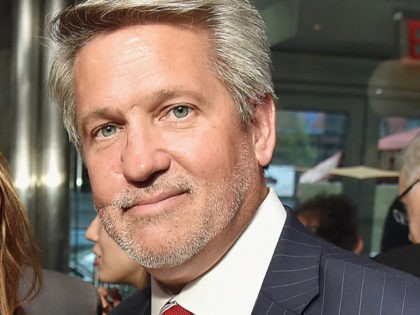
From the perspective of this year, 2038, we can see that three very different events from 20 years ago set in motion the profound partisan realignment in California. It was, indeed, an epic reversal, as the Golden State switched from being overwhelmingly Democratic to overwhelmingly Republican.
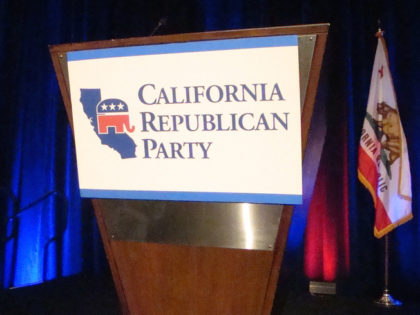
Spending is rising faster than revenues, with no end in sight. Meanwhile, a key Trump priority, infrastructure, is at risk of being squeezed out, unless there’s a tax increase proposal—which would be its own epic fight, with no certain outcome.

Nobody seems to agree on how much the federal government should actually spend, nor do folks agree on how much the deficit-ridden feds can actually pay for any new infrastructure.

As the 2017 wildfire season in California recedes in time, if not in memory, the 2018 wildfire season is looming into view. And so if you live in the Golden State—now the Scorched State, as more than 500,000 acres were burned in 2017—you should be worried about a fire-haunted future.

Populist-Nationalism, Right and Left
Here’s a headline that a lot of people—especially among the entrenched elite—won’t want to see: “2017 Was the Year of False Promise in the Fight Against Populism: The populist wave seems like it may have crested. The data proves otherwise.” In other words, the populists are still on the march. Uh oh.

How did it happen that that most people in, say, Poland, or Hungary, still believe that the old verities—of faith and family, of patriotism and nationalism—are valuable and worth conserving? And at the same time, how did it happen that so many people in the West have come to believe that those old verities are obsolete, if not downright false?

The future of Obamacare repeal and replace lies with the GOP’s past success in converting federal welfare funds into block grants that allow governors to tailor the funds to their own local needs. However, like welfare reform in the 1990s, healthcare reform today will only succeed if it demonstrates that it can improve lives and not just reduce spending. The flesh-and-blood well-being of folks is more meaningful to people than abstract budget numbers showing a deficit reduction.
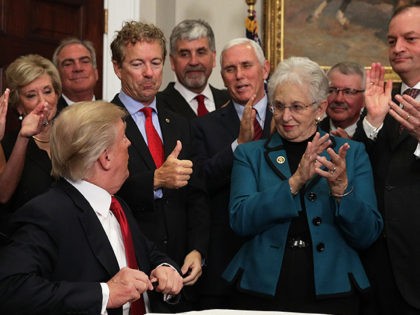
It’s sort of poetic, in a sad way, that the resignation of Health and Human Services Secretary Tom Price on September 29 coincided so closely with the expiration of the 2017 budget resolution on September 30. Those two events signaled the end, at least for now, of Congressional Republicans’ efforts to repeal and replace Obamacare through reconciliation; thus closing the 2017 chapter of the ongoing healthcare fight. However, the fight will likely continue next year. And so, we might consider ways to shift an approach that failed in 2017 to a strategy that could win in 2018.
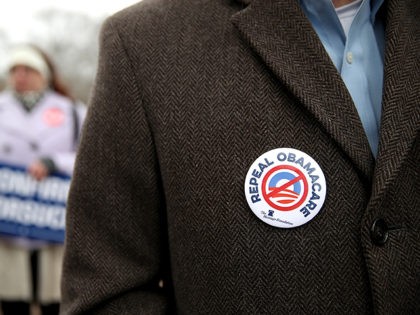
If we look beyond politics to a most extreme example of massed persistence—World War One’s Battle of Passchendaele, a century ago—we might gain insight into the value of adjusting one’s strategy in the face of heavy fire. And in fact, as we shall see, disaster in the short run can sometimes sow the seeds of long-run success.

With the failure of the healthcare repeal-and-replace effort behind them and mindful of that survive-so-as-to-fight-again-and-win ethos, GOP leaders on both ends of Pennsylvania Avenue have been making what’s been described by one insider as “a hard pivot to tax reform” and other Trump agenda items with a better chance of #winning.

Republicans have long been united in opposition to Obamacare, but opposition is a sentiment—it’s not a strategy. With the benefit of hindsight, we can see that Republicans were never together—were never operating as a team—to pursue an effective anti-Obamacare vision. Most glaringly, the GOP was long on “repeal” and short on “replace,” even as the country clearly expected both repeal and replace.
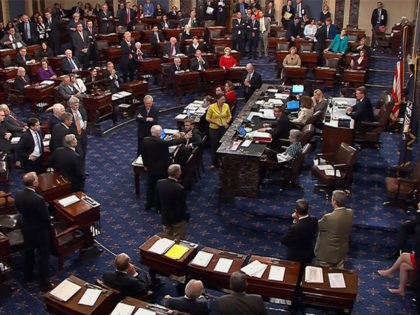
President Trump may be facing frustration in advancing his Republican agenda, but he has clearly succeeded in changing the Democrats’ agenda. The Democratic Party’s new platform, dubbed “A Better Deal,” is aimed to appeal to Trump’s populist base.
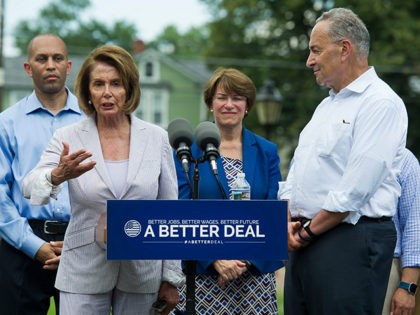
What they say about the weather is also true of politics: If you don’t like what’s happening now, wait a bit—because things will change. The same point holds true for presidential politics. What happens to a president early on is not automatically dispositive to what happens to that president later on. History is full of examples of presidential comebacks, and President Reagan’s first term is a case in point.
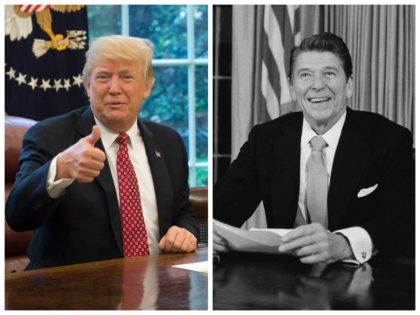
A doomsday climate change cover story in New York magazine is getting lots of buzz among the Beltway elites. The headline is indeed a grabber: “The Uninhabitable Earth: Famine, economic collapse, a sun that cooks us: What climate change could wreak—sooner than you think.”
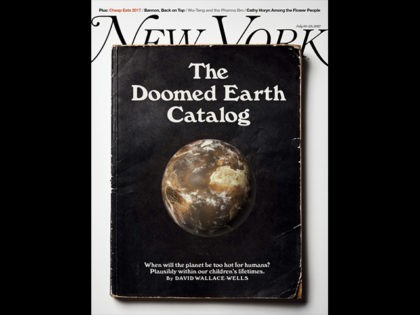
In his new book, “The Working Class Republican: Ronald Reagan and the Return of Blue-Collar Conservatism,” author Henry Olsen argues that Republicans today are getting the Reagan record wrong. In misremembering Reagan’s life, they misapprehend Reagan’s legacy. Olsen’s book proves that Reagan was an enemy of LBJ’s Great Society, but not of FDR’s New Deal.

Senate Majority Leader Mitch McConnell’s decision to delay his chamber’s vote on the Better Care Reconciliation Act (BCRA)—that being the Senate’s companion bill to the House’s repeal-and-replace bill—caused shock waves in Washington. Here are five takeaways.
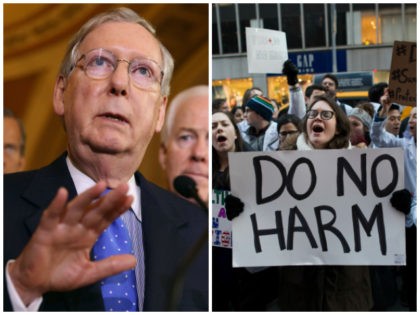
Here are five takeaways from the two special elections on Tuesday: The victory of Republican Karen Handel over Democrat Jon Ossoff in the sixth district of Georgia, and also, the much-less-heralded victory of Republican Ralph Norman in the fifth district of South Carolina.

On Monday, the White House will hold a “tech summit,” playing host to leading executives from most—but not all—of the leading technology companies in America.
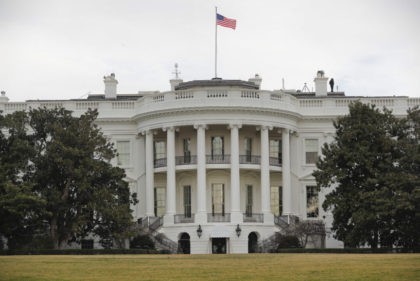
The ultimate hope for Middle American jobs is to make permanent the viability, even desirability, of fossil fuels. And yet fossil fuels will only be safe to use, long term, if they are safeguarded by the addition of new clean technology, endorsed and ratified by specific Congressional action.

While the red states of Trump Nation applauded the president’s decision to withdraw from the Paris Climate Agreement, the opposition in the culture-crafting blue cities along the two coasts flowed fast and furious. Just about every headline and press report in the establishment Media has been critical, with some going out of their way to neon-sign their negativity. Yet in their untiring enthusiasm to hammer Trump with everything available, the elites in the toniest zip codes have made some curious choices, as they seek to make choices for the rest of us.

While profit and national security are key factors in our pursuit of outer space, there is also the innate human desire to strive, to seek, and to find. We are going to outer space because we are curious—and organized curiosity is about as powerful a force as there is in human nature. We are going for the reasons that inspired President Kennedy: because space is there, and because it’s cool. Indeed, those of us who will never go to space should count ourselves as lucky to be alive at a time of renewed exploratory curiosity. We are fortunate to be blessed with sturdy souls—in the public and private sectors—who are willing to take up the challenge of space-questing.

In our first installment, we noted that in the distant past, China had invented key technologies—for war-fighting and ocean-voyaging—and yet had failed effectively to develop them. So now let’s consider the possible fate of another country, the United States. In the 20th century, America broke ground in two technological frontiers: cyberspace and outer space. Both now face serious competition from China. As we shall see, the U.S. chose to develop effectively one of these technologies, but not the other. So could the U.S. today be making the same sort of mistake that China made in the past? We’ll likely know the answer to that question sometime in this century, but even now, the early warning signs are ominous.

As a people, the Chinese obviously know something about building, and maintaining, a strong civilization. And one of the keys to civilization-maintenance is strategic power, both military and industrial. The verdict of history is that sluggishness and ineptitude is catastrophic; the world is always in motion, and so the only hope for a people is to stay atop of the change, lest they be swept under. So now, here’s a pointed question for Americans: Who’s lethargic, and incompetent, today? If not its people as a whole, then at least its ruling elite? Who’s fiddling while the country burns—or falls apart?

On Thursday night, President Trump commemorated the 75th anniversary of the Battle of the Coral Sea. Speaking from the deck of the World War II aircraft carrier Intrepid, permanently berthed in the waters of New York Harbor, Trump paid tribute to the sailors and airmen who fought in that long-ago combat; indeed, seven of the old salts, now in their nineties, were in the audience, and Trump respectfully named each one.

“For conservatives, it was their Camelot.” Those words appear as the epigraph to Craig Shirley’s new book, Reagan Rising: The Decisive Years, 1976-1980. In his new volume, Shirley chronicles the years 1976 to 1980, when Reagan, having lost his bid to grab the Republican presidential nomination away from Gerald Ford, was pondering his next political move—if there was to be one. Along the way, we learn much about America in the late 70s—lessons that echo even to this day, as Americans once again see populist insurgency pitted against establishment power.
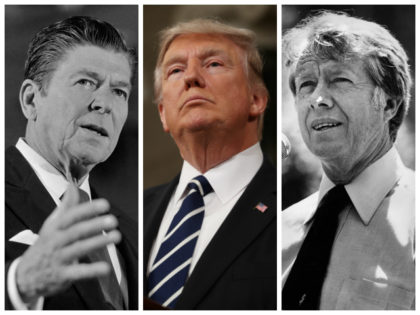
An era has come to an end at Fox News. The departure, last year, of Roger Ailes, its founder and CEO for two decades, and the departure, this year, of Bill O’Reilly, its biggest star for two decades, means that Fox will be changing. What’s said of politics is also true of TV: Personnel is policy. Tell me the names of those who are making the decisions about programming, and the names of those who are actually doing the shows, and I’ll tell you, in turn, about the network. But first, let’s take a closer look at the country—at least its presidential voting patterns—pre-Fox and post-Fox.

The real essence of “a great healthcare plan for the people” would put the focus on science, not finance. Yes, of course, finance is necessary, but money by itself won’t cure a thing.

On Saturday, in the wake of the failure of House Speaker Paul Ryan’s American Health Care Act (AHCA), President Trump tweeted, “ObamaCare will explode and we will all get together and piece together a great healthcare plan for THE PEOPLE. Do not worry!”
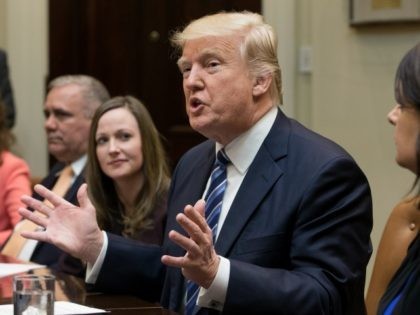
Appropriate for a new president with a bold agenda, a new chapter in healthcare policy is beginning. And, of course, an old chapter is closing. The new chapter is about health. The old chapter was about health insurance—and there’s a difference. As argued here at Breitbart many times, health and health insurance are not the same thing. Both health and health insurance are important, but the first is obviously prior to the second.

As we think about mobilizing to win the war against disease, disability, and premature death, we might start by thinking about how we’ve won our wars in the past.

Where is it written that “healthcare policy” has to be defined only as “health insurance”? Instead of focusing exclusively on health insurance, perhaps Republicans could embrace a broader agenda: focus on health. They could put more emphasis on the science of cures and treatment, and less on the politics of insurance and reimbursement.
